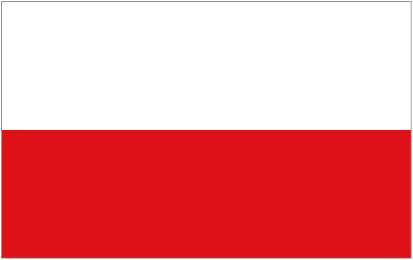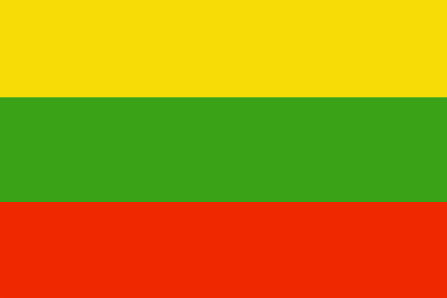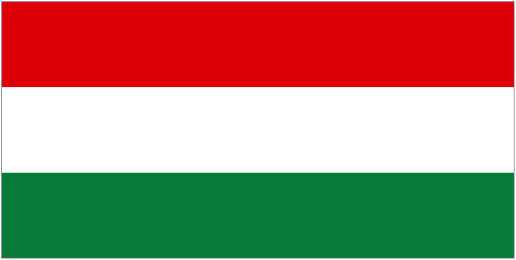T R E E
Traditions, Reality, Education, Entertainment
No. 2016-1-BG01-KA219-023648_6
Strategic Partnership between Schools Only
SZKOLA PODSTAWOWA W BOLMINIE
Chȩciny, Poland
Our primary school in Bolmin is a small institution situated in rural, agricultural and touristic area 15 km from Kielce - the capital of Świetokrzyskie Province. Over 100 pupils aged 6-12 come from a wide range of social backgrounds, many from quite poor families because our region has very high unemployment and one of the lowest income per head in Poland. There is no significant industry, it is hard to find jobs, which leads to migration in search of employment, social exclusion, and all this affects our school community. A project like this is an opportunity to learn about foreign countries, to motivate pupils to learn English, to become more tolerant and open to other nations. Our strong assets are artistic education, civic education and sports especially table tennis. Our 10 teachers are enthusiastic and open to cooperation outside the school, the region, and the country. Our school is new but the equipment used isn’t very modern. Joining a project and getting to know other cultures, seeing how cultural and social activities affect education, will improve better understanding of the ethnical equality, cultural equality and diversity in Europe and will benefit our pupils in the best ways.


MIMAR SINAN ANAOKULU
Efeler, Turkey
The school is in the west of Turkey in the city of Aydın, where olive oil runs down from its mountains and honey comes out of its fields, to where people migrate from both eastern Turkey and Western European countries because of its wonderful nature, history, organic products and relaxed lifestyle.
Those who come from eastern Turkey to work in agriculture are mostly uneducated, low-paid people who face social exclusion. On the other hand, there are migrants who are well educated and well paid, but speak different languages and, of course, there are people from Aydın and the surrounding villages. The migration of people with two different standards of living from the east and the west and the differences within these groups produce gaps and lead to a number of challenges at the school where there are children from all social groups.
The school is very new within the education service in Aydın and has a capacity of 165 pupils, eight classes, ten teachers, a student and parent advisor, five assistant teachers, 2 general staff, a caterer and a head teacher.
The percentage of the pupils whose families immigrated in the last 5 years is 15% and the pupils whose families have an immigrant background is 40%. Ten percent of the pupils in the school have economic problems and are financially supported by the school. There are nine pupils who are severely physically, socially disabled, Down’s syndrome, hyperactive pupils and have the hearing and speaking problems.
In addition to the curriculum, the school has chess, folk dance, drama, music, English language, painting, traditional games, modern dance and handicrafts facilities. The clubs are run by experienced teachers, moreover, they are given in-service training by public training centre of Aydin whenever needed. We also give importance to special or local celebrations and organize special festivities depending on the occasion. Seminars and courses for parents are organized with the help of the school advisor in order to educate them about childcare and behaviour management.
The school is interested in the future of the world, being a member of an environmental foundation TEMA in Turkey. ‘’Love Nature, Protect Green’” In the face of feeling responsible for teaching the students global culture the school has actively been involved in the Comenius Project ‘Stay Strong, Live Long’ which enriched not only the school's curriculum but also the way of institutional standpoint. Furthermore having the rich benefits of projects the school has begun to run an Erasmus+ Strategic school partnership ‘I Play Maths’ in September 2014.

KELMES LOPSELIS-DARZELIS "AZUOLIUKAS"
Kelme, Lithuania
The institution was established in 1971. In 1982 the nursery-kindergarten nr.2 was called “Azuoliukas”. The trend of ethnic culture was chosen in 2004. From 1991 there was established the group working according to the elements of the Montessori system. The group started functioning in 2007. The institution participates in the international preventive program “Zippy’s Friends” from 2006 – 2007. The council of Kelmė district municipality confirmed and allowed to start the project “A good beginning” in 2007. 210 children are educated in 2014 and 2015. There are 163 preschoolers and 47 children of pre-primary age (six years old) in the nursery-kindergarten. There are 9 groups of pre-school education and 2 groups of pre-primary education. In the institution, there are computers, organizational technologies, and modern educational resources: multimedia, IT educational programmes. The vision of Kelmė nursery-kindergarten “Azuoliukas“: a modern, safe, and cooperative educational institution which creatively practises and spreads the experience of ethical education, provides a qualitative pre-school and pre-primary education which is suitable for the demands of the community and allows the individual progress of the child.
The mission of Kelmė nursery-kindergarten “ Azuoliukas“: to provide qualitative pre-school and pre-primary education to every child considering their potential and demands, to develop ethical attitudes, to pursue the expression of child personality which is able to continue a successful learning in a higher educational level.
The worth and philosophy of the institution: every child is unique and worth of love and attention. The task for the community is to help to find out the capabilities of the child, to create a safe and healthy educational environment. The values – responsibility, honesty, and creativeness.
Strategic aims: to cherish ethnical traditions; to create a safe and technically modern institution; to improve the quality of education and allow the individual progress of the child, to create good conditions for the individual requirements, initiative and self-expression.

PRIVATE KINDERGARTEN LEONARDO DA VINCI
Ruse, Bulgaria
Leonardo da Vinci Private Kindergarten was established in 2014 and it prepares children for First private school Leonardo da Vinci. The kindergarten offers proactive training to ensure a smooth transition from children's games to active school activities. Education here is oriented towards:
Practical mastering of Bulgarian language developing accurate pronunciation, storytelling and retelling skills.
Preparation for reading and writing;
Foreign language learning;
Development of thinking and memory by education in mathematics;
Conducting tests for school readiness;
Expanding knowledge about the surrounding world;
Building communication skills;
Development of personal hygiene habits and self-dependence;
The school has bilingual children from mixed marriages for whom fluency in Bulgarian, their mother-language and English languages are equally important.
The inclusion of children to the traditions, customs and lifestyle of the country in which they live should not be separating them from the customs and traditions of their families. The project aims at facilitating their learning interest and encourage children in their development in this direction.
Since this project is extremely important for overcoming the feeling of difference in children and the improvement of their chances for an equal start in school, Svetlina Ltd., which owns Leonardo da Vinci Private Kindergarten, will support its participation in the first project financially. A guarantee for the successful realization of the project is the teachers involved in the activities planned and their experience in a number of projects over the years.

KINDERGARTEN OF BÁTONYTERENYE
Batonyterenye, Hungary
Hungarian law states that every child must spend a minimum of 1 year in kindergarten before attending school.
Our kindergartens are located in nice surroundings near parks and forests. The children spend lots of time outdoors. Families have the freedom to choose the kindergarten for their children.
Children age 3-8 go to kindergarten and we have competence based pedagogical program.
Main goal:
Happy children with good competences to start school education.
Competency-based education through arts.
At the moment we have 390 children in 4 kindergartens and a personnel of 48 staff members. The town of Bátonyterenye is in Nógrád county which is one of the most disadvantaged regions in Hungary. Unemployment is quite high - 28 %.
In the rural area young people follow this tendency: after basic education, most of them become unemployed or leave the area to bigger cities where they have better access to higher education and employment.
There are also gipsy people in the area. So the first place for their better integration is the kindergarten.
We would like to organize a "light workshop" room in our kindergartens to use it for every subject we teach. Our staff is interested in learning new teaching methods and exchanging ideas with colleagues, in order to help our kids before the school education. Some families lack basic education, the parents do not teach the basic norms of behaviour for their kids. They need extra help, and we would like to integrate these disadvantaged children and assist them in acquiring the basic skills and knowledge.

GRADINITA CU PROGRAM PRELUNGIT PERLUTELE MARII
Constanta, Romania
GRADINITA PROGRAM PRELUNGIT “PERLUTELE MARII” is one of the best public early childhood insitutions in Constanta, Romania (with 8 classrooms and 230 children). It is a 10 hour, 5 day program that provides a creative, supportive, nurturing learning environment for children (three meals and sleep session available). The kindergarten provides extensive opening hours that take account of the needs of working parents. The kindergarten staff is interested in offering a high quality early childhood education and care to all children from age three to age five. The programmes aim to develop the social and emotional competence and promote the cognitive, language, literacy and numeracy skills of pre-primary children to provide them with a fair start in primary school. Our educational programs have been trying to promote science learning and create multiple and varied opportunities to engage preschoolers in science exploration and discovery. Children have a natural proclivity to observe, experiment, explore, learn, and discover the world around them. We encourage and support these basic abilities for science learning among children in the early years. The annual educational offer of the kindergarten offers English as a second language (ESL) at early ages (optional activities included in School-based curriculum), which are highly requested by the parents for their children.


